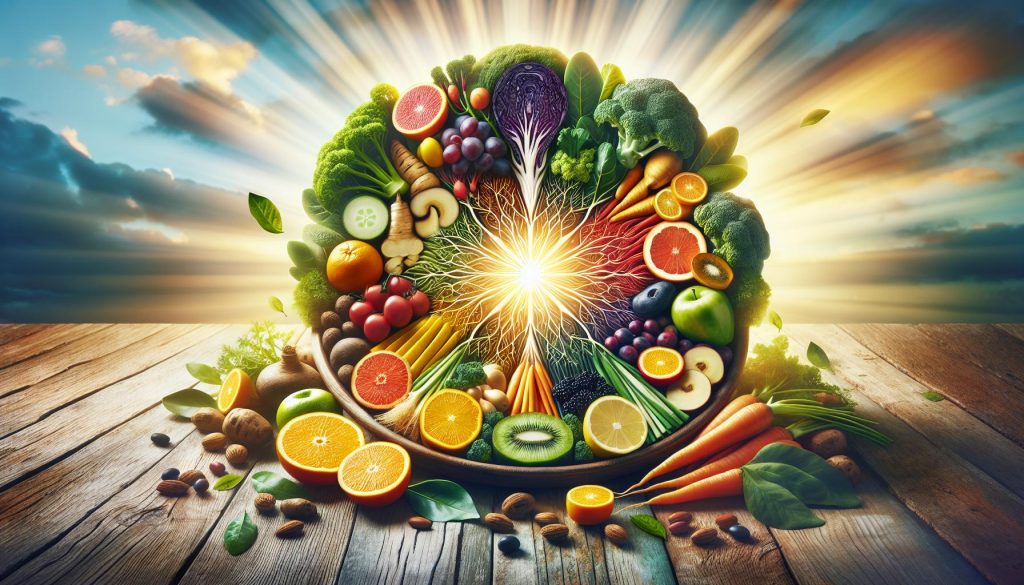
Introduction
So, what exactly is the main source of dietary energy in the human diet? Well, in simple terms, it’s carbohydrates. Whether you’re a fitness fanatic, a health nut, or simply curious about nutrition, you’ve probably heard about these little organic compounds and the important role they play. But what exactly are carbohydrates? And what makes them the superheroes of our diet? Dive into the whys and hows of dietary energy in this comprehensive guide.
The Power of Carbohydrates
Carbohydrates, affectionately known as carbs, are a macronutrient group that includes sugars, starches, and fibers. They’re our body’s preferred source of energy and play a significant role in various bodily functions. Nicknamed the body’s “gasoline,” carbs act as fuel to power us through the day, from doing jumping jacks to simply blinking our eyelids!
The Breakdown of Carbs
When we consume carbs, our body breaks them down into glucose which then travels throughout our bloodstream to different cells, tissues, and organs. It’s this dance of glucose that provides the pep-in-our-step energy and keeps us on the go!
Carbohydrates – All in the Family
Carbohydrates are categorized into two groups: simple carbs and complex carbs. Simple carbs, also known as sugars, are found in natural foods like fruits and milk, as well as processed foods such as candy and soft drinks. Complex carbs, or starches, meanwhile, are found in foods like whole grains, legumes, and vegetables.
Simple and Complex – What’s the Difference?
The key difference lies in the number of sugar molecules. Simple carbohydrates contain one or two sugar molecules hitched together. In contrast, complex carbohydrates are like intricate beadwork, made up of three or more sugar molecules strung together.
Fiber – A Different Kind of Carbohydrate
Fiber, the unsung hero of the carbohydrate family, deserves a spotlight of its own. It offers significant health benefits, from maintaining a healthy digestive system to possibly reducing the risk of certain diseases.
Fiber – The Bodyguard of Your Digestive System
Fiber, unlike its carb siblings, doesn’t break down into sugar. Instead, it pushes through our digestive system relatively undigested, acting like a personal bodyguard, fighting off gastrointestinal problems and promoting a healthier digestive tract.
Carbs – The Epicenter of Dietary Energy
When it comes to energy in the human diet, all roads lead back to carbohydrates. They’re our main energy source, powering our movements, maintaining our body’s functions, and even supporting our brain’s cognitive abilities.
Your Brain on Carbs
Did you know your brain is a carb-lover? It requires a constant supply of glucose to function effectively. And that’s where carbs step in, diligently fueling the little grey cells to keep your mental faculties sharp.
Conclusion
In essence, carbohydrates form the cornerstone of dietary energy in our lives. They not only fuel our daily activities but also contribute to keeping our bodies healthy and our minds buzzing. So next time when we chow down on a bowl of pasta or crunch on an apple, take a moment to appreciate the humble compounds powering our bodies, brains, and everything in between.
Frequently Asked Questions
1. Are carbohydrates the only source of energy in the human diet?
Though carbs are the primary source, proteins and fats can also provide energy when needed.
2. Does our body always use carbohydrates for energy first?
Yes, our body typically prefers carbohydrates because they’re easier to break down into glucose.
3. Can I cut carbs from my diet for weight loss?
While low-carb diets are popular for weight loss, it’s important to include some healthy carbs for sustained energy.
4. Can too many carbs be harmful?
Excessive intake of carbs, especially simple and processed ones, can lead to weight gain and other health issues.
5. What can I eat to get healthy carbohydrates?
Whole grains, fruits, vegetables, and legumes are excellent sources of healthy carbohydrates.



